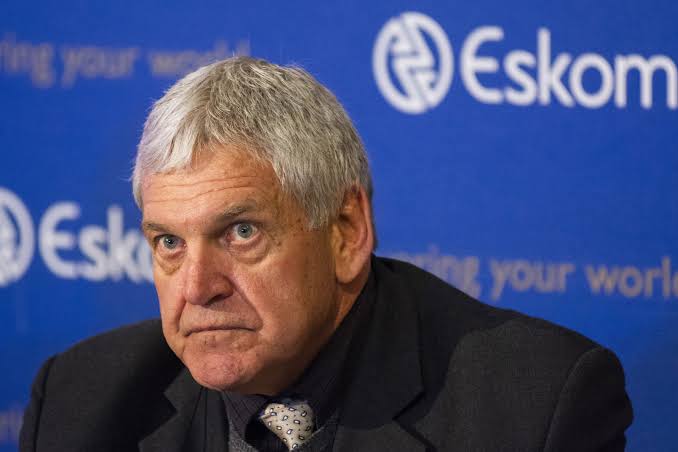Business
From Eskom to Energy Winner: Jan Oberholzer’s Battery Tender Victory Raises Eyebrows

Critics slam Eskom’s former COO’s new deal as ‘white privilege in motion’ amid national energy struggle
In a country still reeling from rolling blackouts and deep distrust in state tenders, the news that Mulilo Energy, chaired by former Eskom COO Jan Oberholzer, landed a multi-billion-rand battery storage contract hasn’t exactly lit up social media with celebration.
Instead, it’s sparked outrage—and some serious questions about the blurred line between public service and private gain.
From crisis to contract: A familiar face wins big
Oberholzer’s time at Eskom—from 2018 until his exit in July 2023—was anything but smooth. He served during one of the utility’s darkest periods, marked by aging infrastructure, corruption scandals, and an explosion of load-shedding that sent households and businesses scrambling for candles, generators, and solar panels.
Now, less than a year later, he’s back in the energy spotlight—but this time, as the chair of a private firm selected to help fix the very grid he once managed.
Mulilo Energy, in partnership with Norwegian renewables firm Scatec, has been announced as the preferred bidder in South Africa’s national battery storage programme. The initiative, launched in March 2024, is designed to store excess solar energy during the day and release it during peak hours to ease pressure on the grid.
But while the project’s goals are widely welcomed, the choice of winner has been anything but.
BBC and NUM: This stinks of a ‘revolving door’
The Black Business Council (BBC) didn’t mince words. In a fiery statement, CEO Kganki Matabane slammed the tender award, accusing Oberholzer of benefiting from insider knowledge gained during his Eskom tenure.
“This smacks of unethical behavior,” Matabane said. “And let’s be honest—if he were Black, this would’ve been labelled corruption by now.”
The National Union of Mineworkers (NUM) echoed the concern, warning of a “revolving door” culture in South African state-owned entities, where executives use their knowledge and connections to score lucrative private deals after leaving office.
Both groups argue that such moves undermine public trust and contradict the government’s anti-corruption promises.
Public perception: Privilege or just good timing?
On platforms like X (formerly Twitter), opinion has been split. Some argue that Mulilo’s win reflects Oberholzer’s industry expertise. Others see it as yet another chapter in South Africa’s tale of elite insiders gaming the system.
“It’s not illegal, just unethical,” one post read. “Same Eskom that gave us darkness is now giving its ex-bosses deals. Where’s the fairness?”
Another user sarcastically quipped, “White excellence = insider knowledge wrapped in a tender.”
Where’s the transparency? MK Party demands answers
Prince Adil Nchabeleng, an MK Party MP and member of Parliament’s Electricity and Energy Committee, says his party has written to Minister Kgosientsho Ramokgopa demanding full disclosure of the bid evaluation process.
“We want to know: what made Mulilo stand out among 26 other bidders? What was the scoring process? Was it truly fair?” Nchabeleng asked.
Past procurement clouds loom large
This isn’t the first time Eskom-linked contracts have triggered scrutiny. Just last year, a R500 million security tender landed in hot water after then-Eskom head of security Karen Pillay was accused of bypassing protocols—allegedly under the guidance of Oberholzer and ex-CEO Andre de Ruyter.
With that history still fresh in the public’s mind, critics are now asking: Is the system broken, or is it working exactly as designed—for a select few?
A country desperate for solutions, not suspicions
To be clear, South Africa needs this battery storage program. With load-shedding costing the economy billions and hurting the poorest communities most, the idea of harnessing excess solar energy for later use is smart policy.
But good ideas can be tainted by bad processes—or even just perceptions of bias. And in a nation grappling with inequality and state capture fatigue, trust is a currency that’s quickly running out.
As the Department of Electricity and Mulilo Energy remain silent, public pressure is growing. South Africans want clarity—and above all, accountability.
Because in the shadows of flickering lights, fairness shouldn’t be the first thing to go dark.
{Source: IOL}
Follow Joburg ETC on Facebook, Twitter , TikTok and Instagram
For more News in Johannesburg, visit joburgetc.com



























